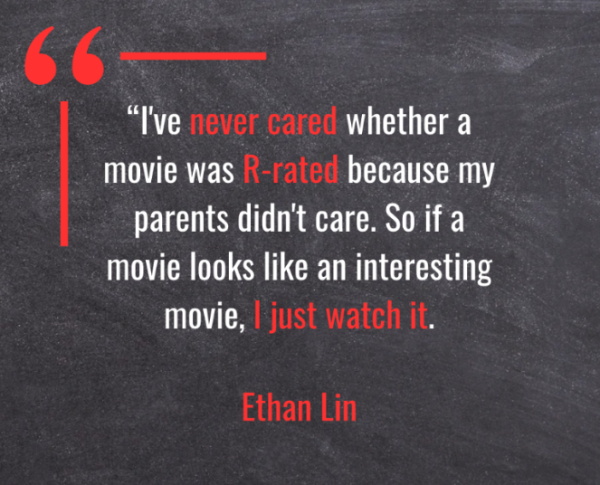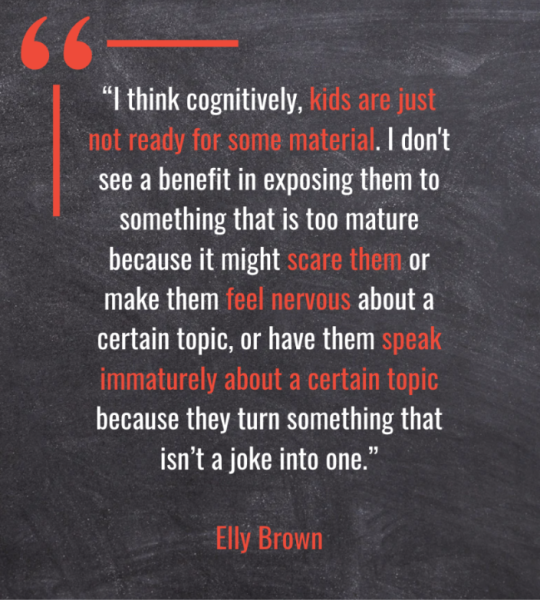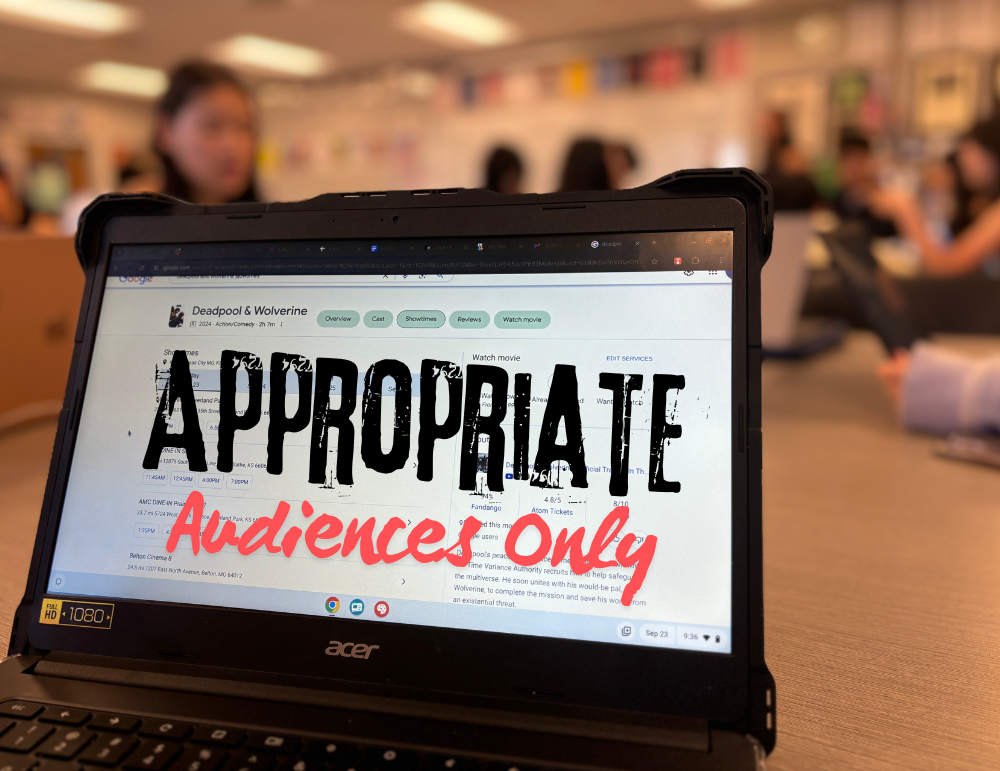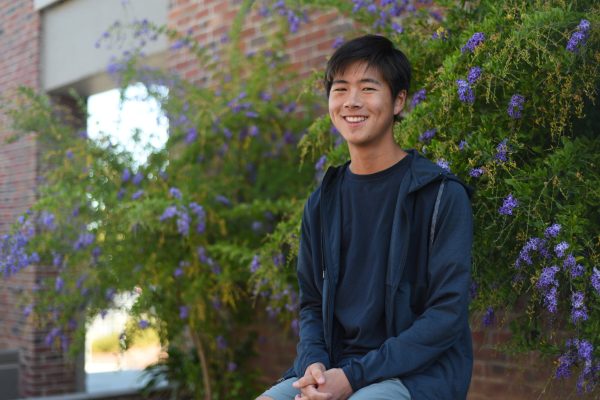Sophomore and Marvel fan Ethan Lin vividly recalls walking into a theater in 2017 to watch “Logan,” 20th Century Fox’s film starring Hugh Jackman as the iconic Wolverine. Lin, who was only a third-grader at the time, was excited to see the conclusion of Jackman’s character in his final solo film. He wasn’t bothered by the fact that the film is rated R by the Motion Picture Association of America (MPAA) for brief nudity and intense violence.
“I’ve never cared whether a movie was R-rated because my parents didn’t care,” Lin said. “So if a movie looks like an interesting movie, I just watch it. I was pretty excited when I saw ‘Logan.’ I wasn’t surprised by the violence, because it was an R-rated movie. It wasn’t anything special.”
In the summer of 2024, Lin saw Jackman make his return in Disney’s Marvel Studios’ “Deadpool & Wolverine.” Despite its family-friendly image — Marvel Studios generally produces PG-13 films and had only used the F-word once up until this point — Disney satisfied fan expectations by continuing the violent, raunchy style that characterized previous “Deadpool” installments. The film is rated R for innuendo, severe violence and 118 F-bombs.
 Regardless of its R-rating, “Deadpool & Wolverine” became the highest-grossing R-rated film worldwide, surpassing $1 billion at the box office and proving that R-rated films’ limited audiences aren’t an obstacle to box office success. According to sophomore Toni Chen, this was possible because of the movie’s marketing.
Regardless of its R-rating, “Deadpool & Wolverine” became the highest-grossing R-rated film worldwide, surpassing $1 billion at the box office and proving that R-rated films’ limited audiences aren’t an obstacle to box office success. According to sophomore Toni Chen, this was possible because of the movie’s marketing.
“I didn’t pay attention to ‘Deadpool & Wolverine’s’ R-rating in advertisements, I only paid attention to the characters because they look cool,” Chen said. “I didn’t know that it was R-rated. The advertisement is pretty discreet as well as very convincing.”
As R-rated movies find the spotlight, middle and high schoolers may engage with adult themes earlier. Lin found that exposure to these tones did not influence his childhood, since he could not fully understand them. However, as a parent, literature teacher Elly Brown handles mature content differently, believing that age restrictions are essential for the well-being of younger audiences.
“I think cognitively, kids are just not ready for some material,” Brown said. “I don’t see a benefit in exposing them to something that is too mature because it might scare them or make them feel nervous about a certain topic, or have them speak immaturely about a certain topic because they turn something that isn’t a joke into one.”

For her children, ages 7, 5 and 3, Brown screens movies on a case-by-case basis to determine if they are appropriate. Chen’s parents take a different approach. Chen is prohibited from watching all R-rated movies. According to an MPAA survey, 62% of parents restrict their child’s access to mature media, yet over 15 million teenagers engage with mature content without adult consent.
Because so much media exists online through forums, images and videos, teenagers interact with and share adult material early. For instance, social media plays a significant role in students’ media exposure, staging the success of R-rated titles such as “Oppenheimer” and “Joker.”
“Students feel that it’s becoming more natural to act a certain way,” Chen said. “They follow trends on social media and watch movies just because that is what other people on social media watch.”
According to Brown, serious topics require maturity to engage with. Still, even with parental oversight, teenagers explore adult content themselves. To combat this, Brown resolves to discuss mature themes in a safe space.
“My 3-year-old would have a hard time grasping the fact that fighting scenes are not real, or something that she’s not going to encounter in her day-to-day life,” Brown said. “She might be nervous about that, whereas my 7-year-old has a more solid understanding of reality and can distance herself from the pretend world of a movie and the real world that we live in.”
As R-rated content continues rising in popularity, Brown finds that the ability to assess media portrayals of adult themes is key to healthy interactions with age-restricted material.
“I would rather my children not watch rated R movies until they’re much older,” Brown said. “But I also don’t want my children to be sheltered from certain content, and I want them to know that they will be exposed to things or hear things from their peers. As long as we’re able to have an open dialogue about some of the more serious material in the content they’re watching, I’d be OK with that.”












